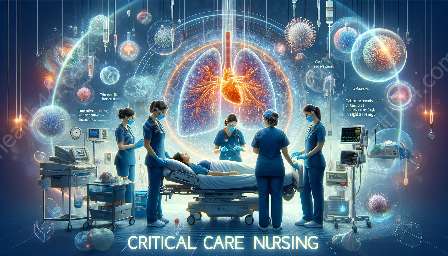The Importance of Pain Management in Critical Care Nursing
Pain management is an integral aspect of critical care nursing. It plays a crucial role in ensuring the well-being of patients in intensive care units (ICUs) and other critical care settings. Managing pain effectively not only contributes to the comfort and recovery of patients but also impacts their overall healthcare experience.
Understanding Pain and Its Impact
Pain can be a complex and multifaceted experience for patients in critical care. It can arise from a variety of sources, including surgical procedures, trauma, chronic conditions, and invasive medical interventions. Inadequate pain management can lead to prolonged hospitalization, delayed rehabilitation, and increased risk of complications. Therefore, critical care nurses must possess a detailed understanding of pain and its impact on patients.
Tools and Techniques in Pain Assessment
Pain assessment is the foundation of effective pain management. Critical care nurses utilize a range of tools and techniques to assess pain, including numerical rating scales, observational assessments for non-verbal patients, and validated pain assessment tools specific to critical care settings. By accurately assessing pain, nurses can tailor interventions to meet the individual needs of their patients.
Multimodal Approaches to Pain Management
Given the diverse nature of pain in critical care, multimodal approaches have become increasingly essential in managing pain effectively. These approaches include a combination of pharmacological and non-pharmacological interventions, such as opioid medications, non-opioid analgesics, regional anesthesia techniques, and complementary therapies. Critical care nurses play a pivotal role in coordinating these interventions and ensuring their safe and appropriate administration.
Collaborative Care and Communication
Effective pain management in critical care necessitates multidisciplinary collaboration and clear communication among healthcare professionals. Nurses work closely with physicians, pharmacists, physical therapists, and other specialists to develop comprehensive pain management plans. Clear communication ensures that each member of the healthcare team is well-informed and aligned in their approach to addressing patients' pain.
Pain Management in General Nursing Practice
Beyond critical care settings, pain management is a fundamental aspect of general nursing practice across various healthcare settings. Nurses in medical-surgical units, emergency departments, and outpatient clinics encounter patients with diverse pain experiences and must be equipped with the knowledge and skills to address their needs.
Evidence-Based Practice in Pain Management
General nursing practice emphasizes the integration of evidence-based approaches to pain management. Nurses stay current with the latest research, guidelines, and best practices to provide optimal care for patients experiencing pain. This includes understanding the effectiveness and potential risks of various pharmacological interventions, as well as non-pharmacological modalities such as cognitive-behavioral techniques, physical therapy, and integrative medicine.
Patient Education and Empowerment
Nurses play a pivotal role in educating patients about pain management strategies and empowering them to participate in their own care. This may involve teaching patients about the appropriate use of pain medications, guiding them through relaxation and self-care techniques, and fostering open communication to address any concerns or misconceptions about pain and its treatment.
Cultural Competence and Holistic Care
General nurses embrace cultural competence and holistic care when managing pain. They recognize the influence of cultural beliefs, values, and practices on patients' experiences of pain. By respecting and understanding cultural diversity, nurses can tailor their approach to pain management in a manner that is sensitive and responsive to the individual needs of each patient.
Quality Improvement and Patient Outcomes
Continuous quality improvement is integral to enhancing pain management practices in general nursing. Nurses actively participate in initiatives aimed at evaluating and improving pain management protocols, assessing patient outcomes, and implementing strategies to minimize the incidence of uncontrolled pain and its associated complications.
Conclusion
Pain management is a dynamic and essential component of nursing care, particularly in critical care and general nursing settings. By focusing on comprehensive pain assessment, implementing multimodal strategies, fostering collaborative care, and integrating evidence-based practices, nurses can have a profound impact on the well-being and recovery of their patients.


